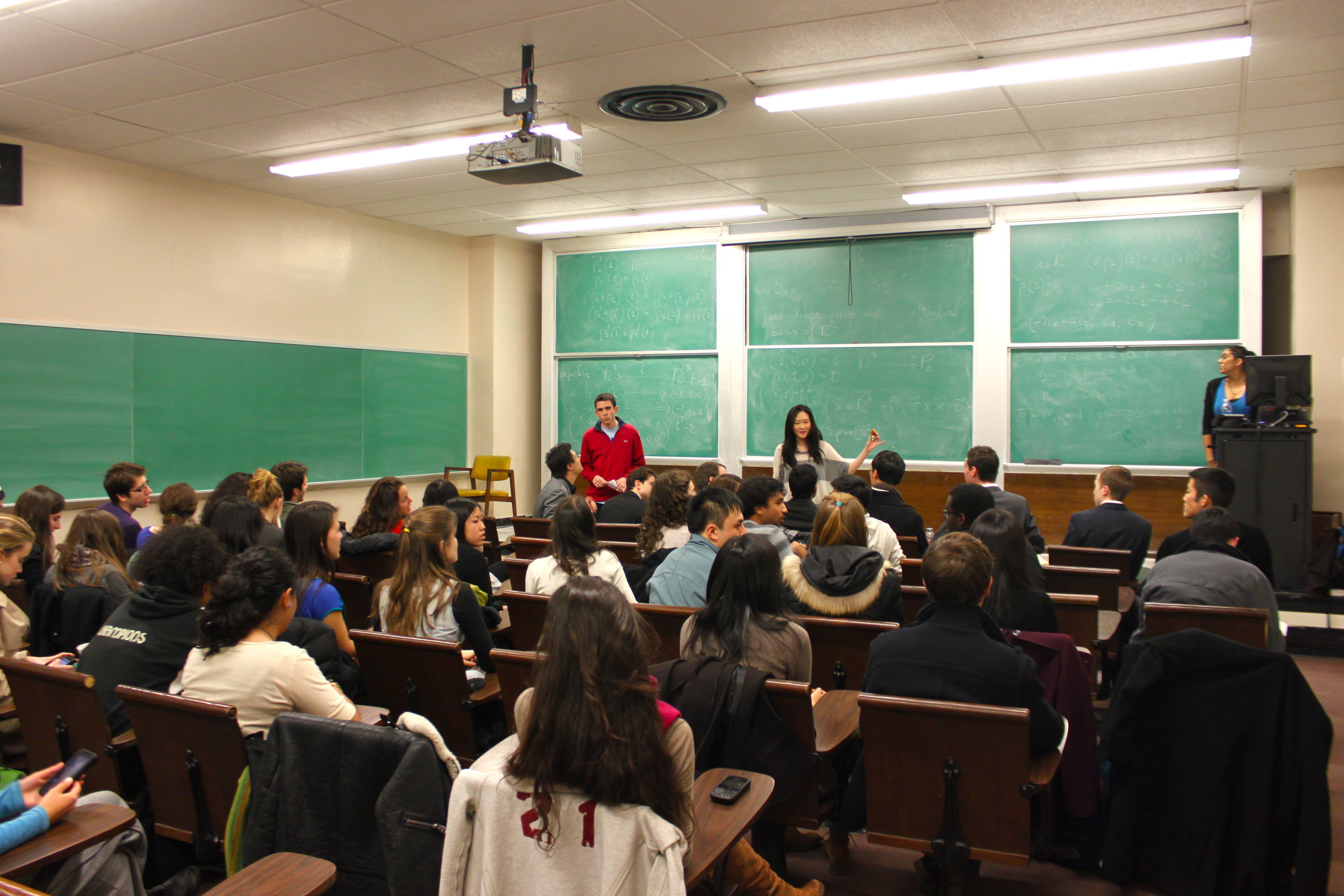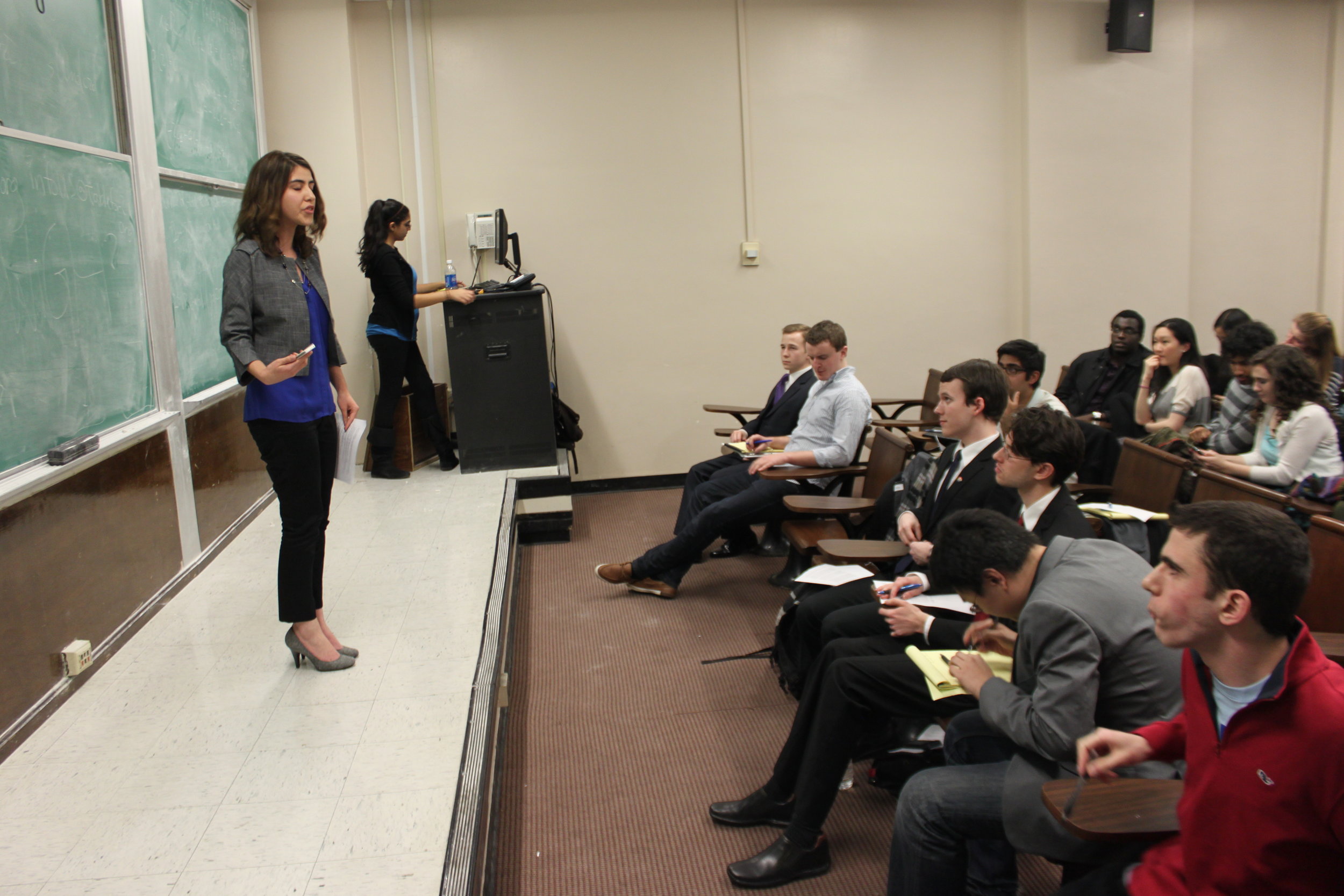Political Minutes: GlobeMed Health Care Debate
 Columbia’s GlobeMed – one of 32 GlobeMed chapters working to improve the health of people living in poverty around the world – hosted an inter-club public debate on the link between health and social justice on Monday night. In honor of World Day of Social Justice, GlobeMed hosted the College Democrats, College Republicans, Columbia Debate, CIRCA (Columbia International Relations Council and Association), and the Journal of Global Health.
Columbia’s GlobeMed – one of 32 GlobeMed chapters working to improve the health of people living in poverty around the world – hosted an inter-club public debate on the link between health and social justice on Monday night. In honor of World Day of Social Justice, GlobeMed hosted the College Democrats, College Republicans, Columbia Debate, CIRCA (Columbia International Relations Council and Association), and the Journal of Global Health.
The questions for debate included: Should states allow individuals to opt out of the coverage of the Affordable HealthCare Act? Is health a universal human right? Is healthcare? Whose responsibility is it to provide healthcare? Is there a moral imperative for utilitarianism when assessing health care systems?
The British Parliamentary structure of the debate allowed two members of each group to speak once, thereby bringing eight speakers on the stage for the audience to applaud, laugh, and even playfully heckle. College Democrats and CIRCA stood on “Pro” side of the debate while Columbia Debate and College Republicans stood in opposition.
As Radhe Patel, CC’15, organizer and moderator of the debate on behalf of GlobeMed, explained after the event, the arrangement of the debate was such that CIRCA and Columbia Debate spoke first and laid the groundwork for current US health care policy, “Obamacare,” private insurance company policy, the “free-riding” concern, and more.
While teams threw various arguments from across the board and cross-examined opposing teams during the course of their speeches, the final speech of each team revealed the primary standing arguments. The College Democrats addressed the cost-creep cycle, the free-rider problem, and contended that “facilitative rights are real and need to be actualized.”
As CPR’s very own Taylor Thompson, CC’14, established in his first speech for the College Republicans, the fundamental question is whether individuals should ultimately be able to opt out of the mandate. Is Congress permitted to obligate individuals to purchase a specific product – in this case, coverage of the Affordable HealthCare Act?
Columbia Debate’s final speaker, Rohan Jotwani, CC’12, further contended as a speaker on the opposition that the choice to opt out allows the system to improve. “We should not be forced to buy flawed insurance policies” – Jotwani concluded by motivating the audience to question whether the right to liberty was really equivalent to the right to medicine.
Following the event, members of the audience found the event to be eye-opening. Isabella Fisher, CC ’14, a member of GlobeMed, noted that even standpoints she did not traditionally agree with raised interesting questions at the crossroads of social justice and healthcare. Speakers on the opposition raised the idea that just because individuals have rights doesn’t mean they have to be used – “I never thought of healthcare from that perspective before.”
As the last remaining cupcakes were being cleaned up and copies of the Journal of Global Health were being distributed to exiting attendees, organizer Patel commended each of the four groups for competing and presenting such engaging speeches. She was glad the scope of debate extended from just constitutionality of the oft-discussed universal health care policy to larger questions of social justice: “Is the right to health as fundamental as the right to life?”


